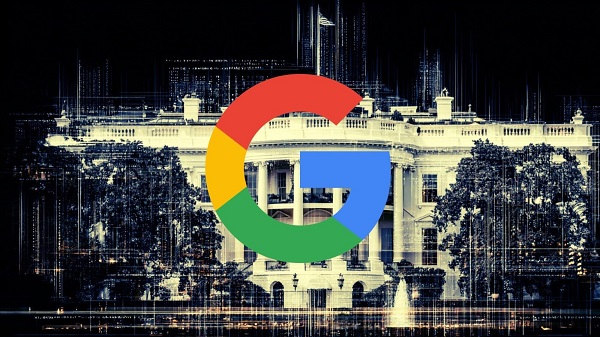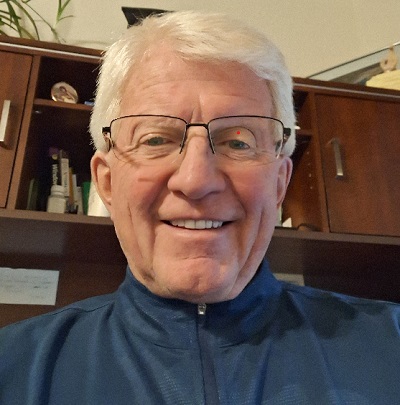2025 Federal Election
Ottawa Confirms China interfering with 2025 federal election: Beijing Seeks to Block Joe Tay’s Election

 Sam Cooper
Sam Cooper
The announcement marks the first time SITE has publicly confirmed that China is directly seeking to block the election of a particular candidate during the 2025 federal election—an election already shadowed by growing concern over Chinese interference through cyber operations and diaspora political networks.
One week before Canadians head to the polls, Ottawa has confirmed an escalation in China’s election interference efforts, identifying Conservative candidate Joseph Tay as the target of a widespread and highly coordinated ongoing transnational repression campaign tied to the People’s Republic of China.
The SITE Task Force—Canada’s agency monitoring information threats during the election—formally disclosed today that Tay, the Conservative Party candidate for Don Valley North, is the victim of inauthentic online amplification, digital suppression, and reputational targeting orchestrated by networks aligned with Beijing’s foreign influence operations.
The announcement marks the first time SITE has publicly confirmed that China is directly seeking to block the election of a particular candidate during the 2025 federal election—an election already shadowed by growing concern over Chinese interference through cyber operations and diaspora political networks.
“This is not about a single post going viral,” SITE warned. “It is a series of deliberate and persistent activity across multiple platforms—a coordinated attempt to distort visibility, suppress legitimate discourse, and shape the information environment for Chinese-speaking voters in Canada.”
SITE said the most recent coordinated activity occurred in late March, when a Facebook post appeared denigrating Tay’s candidacy. “Posts like this one appeared en masse on March 24 and 25 and appear to be timed for the Conservative Party’s announcement that Tay would run in Don Valley North,” SITE stated in briefing materials.
One post, circulated widely in Chinese-language spaces, featured an image that read: “Wanted for national security reasons, Joe Tay looks to run for a seat in the Canadian Parliament; a successful bid would be a disaster. Is Canada about to become a fugitive’s paradise?”
Significantly, according to The Bureau’s analysis, the post’s message resembles earlier remarks made by then-Liberal MP Paul Chiang to a small group of Chinese journalists in Toronto in January—comments made shortly after Tay’s inclusion on a Hong Kong bounty list was first publicized.
Chiang reportedly told the journalists that Tay’s election would raise significant concern due to the bounty he faced, before suggesting that Tay could be turned over to the Chinese consulate in Toronto.
Tay, a Hong Kong-born human rights advocate, was named in December 2024 by Hong Kong authorities as one of six overseas dissidents subject to an international arrest warrant and monetary bounty. His photograph appeared on a wanted list offering cash rewards for information leading to his capture—an unprecedented move that Canadian officials condemned as a threat to national sovereignty.
“The decision by Hong Kong to issue international bounties and cancel the passports of democracy activists and former Hong Kong lawmakers is deplorable,” SITE stated today. “This attempt by Hong Kong authorities to conduct transnational repression abroad—including by issuing threats, intimidation or coercion against Canadians or those in Canada—will not be tolerated.”
However, while facing an international wave of criticism, Prime Minister Mark Carney did tolerate his candidate’s alleged role in this activity. When asked earlier in the campaign whether he stood by Chiang, Carney said the Liberal MP retained his confidence. Chiang ultimately stepped down only after the RCMP confirmed it was reviewing the matter.
Chiang, who had been endorsed by Prime Minister Carney, was replaced as the Liberal candidate by Peter Yuen, the former Deputy Chief of the Toronto Police Service.
As The Bureau previously reported, Yuen traveled to Beijing in 2015 with a delegation of Ontario Chinese community leaders and politicians to attend a major military parade hosted by President Xi Jinping and the People’s Liberation Army—an event commemorating the Chinese Communist Party’s Second World War victory over Japan.
Yuen’s presence at that event—and his subsequent appearances at diaspora galas alongside leaders from the Confederation of Toronto Chinese Canadian Organizations (CTCCO), a group cited in national security reporting—has drawn media scrutiny.
Both Chiang and Yuen have stated that they strongly support Canada’s rule of law and deny any involvement in inappropriate activities.
According to SITE’s findings, Tay’s campaign has been the focus of two parallel strands of foreign influence since the beginning of the writ period. The first involves inauthentic and coordinated amplification of content related to Tay’s Hong Kong arrest warrant, including repeated efforts to cast doubt on his fitness for office. This activity has spanned multiple platforms commonly used by Chinese-speaking Canadians, including WeChat, Facebook, TikTok, RedNote, and Douyin.
The second strand is a deliberate suppression of Tay’s name in both simplified and traditional Chinese on platforms based in the People’s Republic of China. When users attempt to search for Tay, the platforms return only information related to the Hong Kong bounty—effectively erasing his campaign content and political biography from the digital public square.
While SITE noted that engagement levels with the disinformation remained limited, the timing, repetition, and cross-platform consistency led the Task Force to conclude this is a serious case of foreign interference.
The Bureau is a reader-supported publication.
To receive new posts and support my work, consider becoming a free or paid subscriber.
Invite your friends and earn rewards
2025 Federal Election
Post election report indicates Canadian elections are becoming harder to secure

Chief Electoral Officer Stéphane Perrault highlights strong participation and secure voting, but admits minority politics, rising costs, and administrative pressures are testing the system’s limits.
Monday in Ottawa, Stéphane Perrault, Canada’s Chief Electoral Officer, delivered a long press conference on April’s federal election. It was supposed to be a victory lap, record turnout, record early voting, a secure process. But if you listened closely, you heard something else: an admission that Canada’s election machinery is faltering, stretched thin by a system politicians refuse to fix.
Perrault touted the highest turnout in 30 years, 69 percent of eligible voters, nearly 20 million Canadians. Almost half of those ballots were cast before election day, a dramatic shift in how citizens take part in democracy.
“Twenty years ago, less than 7% voted early. This year, nearly half did,” Perrault told reporters. “Our system may have reached its limit.”
That’s the core problem. The system was built for one decisive day, not weeks of advance voting spread across campuses, long-term care homes, mail-in ballots, and local Elections Canada offices. It’s no longer a single event; it’s an extended process that stretches the capacity of staff, polling locations, and administration.
Perrault admitted bluntly that the 36-day writ period, the time between when an election is called and when the vote happens, may no longer be workable. “If we don’t have a fixed date election, the current time frame does not allow for the kind of service preparations that is required,” he said.
And this is where politics collides with logistics. Canada is once again under a minority government, which means an election can be triggered at almost any moment. A non-confidence vote in the House of Commons, where opposition parties withdraw support from the government, can bring down Parliament in an instant. That’s not a flaw in the system; it’s how parliamentary democracy works. But it leaves Elections Canada on permanent standby, forced to prepare for a snap election without knowing when the writ will drop.
The result? Sixty percent of voter information cards were mailed late this year because Elections Canada couldn’t finalize leases for polling stations on time. Imagine that, more than half the country got their voting information delayed because the system is clogged. And that’s when everything is supposedly working.
The April election cost an estimated $570 million, almost identical to 2021 in today’s dollars. But here’s the kicker: Elections Canada also spent $203 million just to stay ready during three years of minority Parliament. That’s not democracy on the cheap. That’s bureaucracy on retainer.
Perrault admitted as much: “We had a much longer readiness period. That’s the reality of minority governments.”
No Foreign Interference… But Plenty of ‘Misinformation’
Canada’s top election official wanted to make something perfectly clear: “There were no acts of foreign interference targeting the administration of the electoral process.” That’s the line. And it’s a good one… reassuring, simple, the kind of phrase meant to make headlines and calm nerves.
But listen closely to the wording. He didn’t say there was no interference at all. He said none of it targeted the administration of the vote. Which raises the obvious question: what interference did occur, and who was behind it?
Perrault admitted there was “more volume than ever” of misinformation circulating during the 2025 election. He listed the greatest hits: rumors that Elections Canada gives voters pencils so ballots can be erased, or claims that non-citizens were voting. These are hardly new — they’ve appeared in the U.S. and in Europe too. The difference, he said, is scale. In 2025, Canadians saw those narratives across more channels, more platforms, more communities than ever before.
This is where things get interesting. Because the way Perrault framed it wasn’t that a rogue actor or a foreign intelligence service was pushing disinformation. He was blunt: this was a domestic problem as much as anything else. In his words, “whether foreign or not,” manipulation of information poses the “single biggest risk to our democracy.”
Perrault insists the real danger isn’t foreign hackers or ballot-stuffing but Canadians themselves, ordinary people raising questions online. “Information manipulation, whether foreign or not, poses the single biggest risk to our democracy,” he said.
Well, maybe he should look in the mirror. If Canadians are skeptical of the system, maybe it’s because the people running it haven’t done enough to earn their trust. It took years for Ottawa to even acknowledge the obvious , that foreign actors were meddling in our politics long before this election. Endless commissions and closed-door reports later, we’re told to stop asking questions and accept that everything is secure.
Meanwhile, what gets fast-tracked? Not a comprehensive fix to protect our democracy, but a criminal investigation into a journalist. Keean Bexte, co-founder of JUNO News, is facing prosecution under Section 91(1) of the Canada Elections Act for his reporting on allegations against Liberal candidate Thomas Keeper. The maximum penalty? A $50,000 fine and up to five years in prison. His reporting, incidentally, was sourced, corroborated, and so credible that the Liberal Party quietly dropped Keeper from its candidate list.
If people doubt the system, it isn’t because they’re gullible or “misinformed.” It’s because the government has treated transparency as an afterthought and accountability as an inconvenience. And Perrault knows it. Canadians aren’t children to be scolded for asking questions, they’re citizens who expect straight answers.
But instead of fixing the cracks in the system, Ottawa points the finger at the public. Instead of rebuilding trust, they prosecute journalists.
You don’t restore faith in democracy by threatening reporters with five years in prison. You do it by showing, quickly and openly, that elections are beyond reproach. Until then, spare us the lectures about “misinformation.” Canadians can see exactly where the problem lies, and it isn’t with them.
The Takeaway
Of course, they’re patting themselves on the back. Record turnout, no servers hacked, the trains ran mostly on time. Fine. But what they don’t want to admit is that the system barely held together. It was propped up by 230,000 temporary workers, leases signed at the last minute, and hundreds of millions spent just to keep the lights on. That’s not stability. That’s triage.
And then there’s the lecturing tone. Perrault tells us the real threat isn’t incompetence in Ottawa, it’s you, Canadians “sharing misinformation.” Excuse me? Canadians asking questions about their elections aren’t a threat to democracy, they are democracy. If the government can’t handle people poking holes in its story, maybe the problem isn’t the questions, maybe it’s the answers.
So yes, on paper, the 2025 election looked like a triumph. But listen closely and you hear the sound of a system cracking under pressure, led by officials more interested in controlling the narrative than earning your trust. And when the people running your elections think the real danger is the voters themselves? That’s when you know the elastic isn’t just stretched. It’s about to snap.
Subscribe to The Opposition with Dan Knight .
For the full experience, upgrade your subscription.
2025 Federal Election
NDP’s collapse rightly cost them official party status

This article supplied by Troy Media.
 By Michael Taube
By Michael Taube
Official party status requires 12 seats. The NDP got seven. End of story
Rules are rules.
That, in a nutshell, is why the NDP wasn’t granted official party status in the House of Commons on Monday. Prime Minister Mark Carney and the
Liberals, to their credit, made the right decision.
Let’s examine why.
The 1963 Senate and House of Commons Act passed an amendment that gave an annual allowance to party leaders other than the prime minister and
leader of the Opposition. In doing so, the Canadian government had to establish what constitutes a “political party.” The definition they came up with was a sensible one: it had to have a “recognized membership of 12 or more persons in the House of Commons.”
This important amendment is still used today.
The NDP fell from 24 to a paltry seven seats in last month’s federal election. (There are a total of 343 seats in the House of Commons.) They finished with 1,234,673 votes, or 6.29 per cent, which was behind the Liberals, Conservatives and Bloc Québécois. Party leader Jagmeet Singh, who had represented the former Burnaby South riding since 2019, finished a distant third in the newly created Burnaby Central riding and resigned.
The NDP’s seven seats is well below the 12-seat requirement needed for official party status. This means Canada’s socialist alternative won’t be able to ask questions in the House of Commons and will lose out on money for research purposes.
Or, to put it another way, they’re plumb out of luck.
Hold on, some people said. They pointed out that the NDP’s seat count and popular vote only plummeted because many progressive voters backed Carney and the Liberals as the best option to counter U.S. President Donald Trump and his tariffs. They felt that the NDP’s long history as a champion for unions and the working class should count for something. They suggested there should be an exception to the rule.
Guess what? They’re wrong.
This is the worst election result in the party’s history. Even its predecessor, the Co-operative Commonwealth Federation (CCF), did marginally better in its first campaign. The CCF won seven out of 245 seats—and earned 410,125 votes, or 9.31 per cent—in the 1935 election. Party leader J.S. Woodsworth, who had represented the riding of Winnipeg North Centre as an Independent Labour MP since 1925, comfortably held his seat.
Meanwhile, this won’t be the first time they’ve ever lost official party status.
The NDP dropped from 43 to nine seats in the 1993 election. It was a dismal showing, to say the least. There was a suggestion at the time that then-party leader Audrey McLaughlin, the first woman to lead a party with political representation in Canada’s House of Commons, deserved a better fate. While the NDP certainly came closer to achieving the 12-seat requirement in this particular election, Prime Minister Jean Chrétien and the Liberals decided against granting them official party status.
Why? As I mentioned earlier, rules are rules.
Then again, British pilot Harry Day notably told his fellow flying ace Douglas Bader in 1931, “You know my views about some regulations—they’re written for the obedience of fools and the guidance of wise men.”
Does this mean that individuals and organizations who follow rules are, in fact, fools? Not at all. While certain rules in a liberal democratic society can range from slightly questionable to utterly ridiculous, they’re usually put in place for a specific purpose.
In the case of the House of Commons, it’s to ensure that a bar has been set with respect to political representation. Is 12 seats the right number? That’s difficult to say. It certainly prevents small protest parties and one-issue parties that unexpectedly win a tiny number of seats in an election from acquiring power and status right off the bat. They need to win more seats and grow in size and stature to reach a point of respectability. Most of them never reach this point and disappear while others float in a constant state of mediocrity like the Green Party of Canada. ’Tis the nature of the political beast.
One final point. If Singh and the NDP had reached double digits in total number of seats in 2025, a solid case could have been made in favour of official party status. If they had finished with 11 seats, it would have almost been a lock. Neither scenario ultimately materialized, which is why Carney and the Liberals did exactly what they did.
Michael Taube is a political commentator, Troy Media syndicated columnist and former speechwriter for Prime Minister Stephen Harper. He holds a master’s degree in comparative politics from the London School of Economics, lending academic rigour to his political insights.
Troy Media empowers Canadian community news outlets by providing independent, insightful analysis and commentary. Our mission is to support local media in helping Canadians stay informed and engaged by delivering reliable content that strengthens community connections and deepens understanding across the country.
-

 Business16 hours ago
Business16 hours agoOver $2B California Solar Plant Built To Last, Now Closing Over Inefficiency
-

 espionage2 days ago
espionage2 days agoCanada Under Siege: Sparking a National Dialogue on Security and Corruption
-

 Business15 hours ago
Business15 hours agoWEF has a plan to overhaul the global financial system by monetizing nature
-

 Business17 hours ago
Business17 hours agoThe Leaked Conversation at the heart of the federal Gun Buyback Boondoggle
-

 Business2 days ago
Business2 days agoGoogle Admits Biden White House Pressured Content Removal, Promises to Restore Banned YouTube Accounts
-

 Opinion16 hours ago
Opinion16 hours agoThe City of Red Deer’s financial mess – KPMG report outlines failure of council to control spending
-

 International2 days ago
International2 days agoTrump says he won’t back down on Antifa terrorism designation
-

 Business2 days ago
Business2 days agoDepartment of Energy returning $13B climate agenda funding to taxpayers








